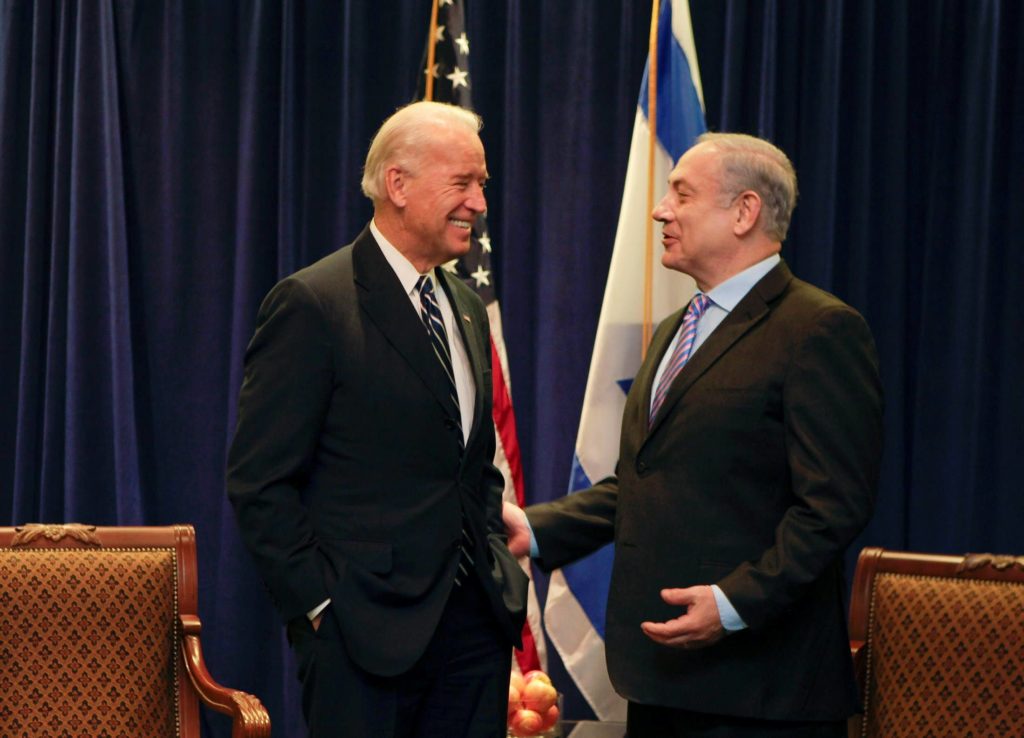Australia/Israel Review, Featured
Editorial: A Time of Transition
Nov 24, 2020 | Colin Rubenstein

The time between the Nov. 3 US presidential election and the Jan. 20 inauguration of a new president is, as is well known, the transition period. It is a phase in which outgoing President Donald Trump could spring a number of surprises.
His reluctance so far to concede the election to President-elect Joe Biden has complicated the current transition and unfortunately may diminish the legacy of a number of his Administration’s dramatically positive and path-breaking contributions to US foreign policy, particularly in the Middle East.
Especially problematic for his Administration’s Middle East legacy is his questionable decision to draw down major portions of the US troop presence in both Afghanistan and Iraq before Jan. 20 – which can only embolden dangerous actors such as the Taliban in Afghanistan and the pro-Iranian Shi’ite militias in Iraq.
While Trump was the quintessential Washington outsider, and Obama also a relative newcomer, Biden is one of DC’s best-connected political insiders, whose career took root in a legislative era that operated with far more comity and bipartisanship than is evident today.
Moreover, as veteran Washington Middle East expert Dennis Ross, who worked alongside Biden in the Obama administration, recently pointed out, Biden has a long history of “figuring out how to manage disagreements and work them out” – of being a broker of compromises.
Biden is a self-professed “Zionist”, whose deeply felt support for Israel and knowledge of the Jewish state’s security dilemmas is not in doubt. Hopefully, then, he will use his leadership role to help shepherd the US political centre back into the familiar pastures of broad-based, bipartisan, pro-Israel consensus that was the status quo until recent years.
While the Obama administration in which he served certainly contributed to the breaking of that consensus through its conscious policy of seeking “daylight” from the Israeli government, and a stubborn determination to reach an agreement with Iran on almost any terms in the face of Israeli opposition, a return to that negative, clinical and inept approach under Biden seems unlikely.
It is worth recalling that, as Ross says of the Obama years, “vice president Biden was a consistent questioner of those who wanted to put pressure on Israel… He would constantly say, ‘it’s OK for us to ask Israel to do things, but it can’t be that we’re asking only Israel to do things.’”
While growing elements of the Democratic party are extremely critical of Israel and of the Israel-US relationship, happily these elements were weakened by a poor electoral showing. Biden should therefore be free to navigate a path consistent with his natural pro-Israel inclinations.
Additionally, realities have changed significantly since the Obama years. Biden has publicly supported the US-brokered normalisation agreements between Israel and Arab countries and promised to continue the momentum. These agreements mean that the Palestinian issue is no longer acting as the roadblock it has long been to progress on various issues across the Middle East, and Israel is today effectively a key part of a tacit regional alliance of moderate Sunni Arab states, united by common fears of aggressive regional actors Iran and Turkey and their respective proxies.
While Biden has said he will renew ties with the Palestinian Authority broken by the Trump Administration, he has also pledged to make US aid to the Palestinian Authority conditional on its ending financial support for convicted terrorists.
Anyone with the long foreign policy experience that Biden has would surely understand that a two-state Israeli-Palestinian peace agreement is not on the cards in the short term. However, a promising route to help achieve it in the longer term is to continue to expand the circle of normalisation between Israel and its Arab neighbours, thus providing a potential Arab framework of support and mediation for a deal down the track, as well as a Palestinian reality check.
Meanwhile, Israelis, their Arab neighbours and many other policy watchers concerned about the Middle East will be observing the Biden administration’s potentially more demanding approach to Turkey and particularly its Iran policy with intense interest.
Biden has expressed a desire to have the US re-join the 2015 Joint Comprehensive Plan of Action (JCPOA) nuclear deal with Iran – providing Iran also returns to full compliance. Afterwards, his policy is to seek to assemble multilateral diplomatic pressure on Iran to improve and expand the nuclear deal to address Iran’s ballistic missile program, curtail Iran’s aggressive subversion and support for terrorism and also extend the JCPOA’s sunset provisions that would remove most barriers to Iranian nuclear development within a few years.
The JCPOA’s terms, as written, are too fundamentally flawed to ever adequately deal with the Iranian nuclear threat. Nonetheless, the Biden administration’s policy of return to compliance, followed by renegotiation and expansion, could be somewhat effective – providing it recognises that the economic pressure on the Iranian regime built up under the Trump Administration is its best asset.
Only a minority of the Trump Administration’s extensive suite of sanctions on Teheran are specifically nuclear-related. Thus, Biden can offer to lift all nuclear-related sanctions on Iran for a return to full compliance with the JCPOA, while maintaining strong additional sources of leverage on the regime via the non-nuclear sanctions.
Furthermore, Biden hopes to be more effective than Trump in recruiting European allies to support his new strategy of improving and extending the nuclear deal – which could indeed help increase the pressure on Teheran.
The Trump Administration’s Persian Gulf and Middle East regional policies were some of its most successful. Biden’s very different leadership style, and divergent policy emphases, do not mean he can’t build on some of the Trump Administration’s major achievements. On the contrary, Biden may be well placed to do so – providing his administration is prepared to acknowledge the profoundly changed realities in the Middle East since 2016, and adjust US policies accordingly.
Tags: Israel, Joe Biden, Middle East, United States






